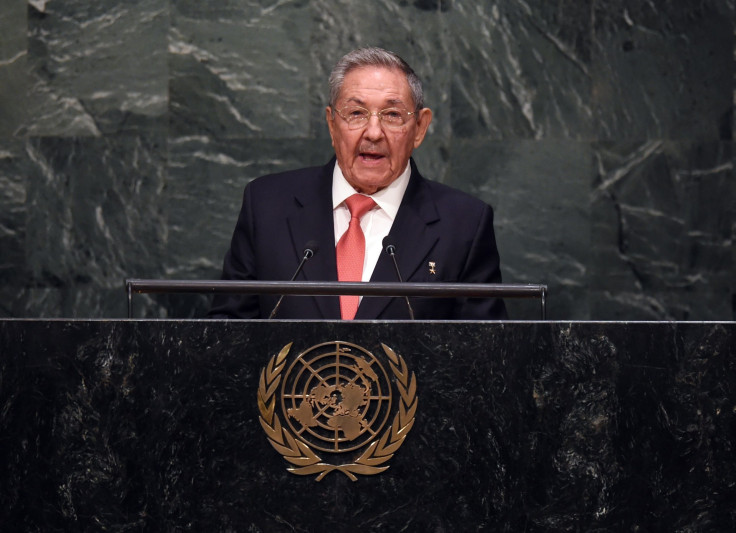Raúl Castro UN Live Stream: Watch Cuba's President Speak At United Nations General Assembly

Cuban President Raúl Castro was set to give his second official speech before the United Nations Monday afternoon. Castro, who took over for his brother Fidel in 2006, was expected to push for the United States to lift its embargo on the nation, a message he also delivered Saturday at a U.N. development summit.
"The economic, commercial and financial blockade against Cuba persists, as it has been for half a century, bringing damages and hardships on the Cuban people and is the main obstacle to the economic development of our country," Castro said of the embargo, which has been in place since the 1960s. He added that it was also "hurting the interests of American citizens and companies," Agence France Presse reports.
Castro is set to address the U.N. General Assembly during its afternoon session, which started at 3 p.m. Monday. Watch his speech below in Spanish or here in English:
Cuba and the U.S. have been moving toward normalized diplomatic relations since December 2014 under the administration of U.S. President Barack Obama. The two presidents met in April and were scheduled to do so again Tuesday in New York City. Obama said in his own U.N. speech Monday that he thought Congress would "inevitably" reverse the economic block against Cuba. The U.S. has already loosened a few of its sanctions on travel, telecommunications and commerce on the island.
“For 50 years the United States pursued a Cuba policy that failed to improve the lives of the Cuban people. We changed that,” Obama said, according to CBS Miami. “We continue to have differences with the Cuban government. We will continue to stand up for human rights but we address these issues through diplomatic relations and increase commerce and people to people ties.”
Castro referenced Saturday the more than 20 annual U.N. General Assembly resolutions wherein members have denounced the embargo. The U.S. may break with tradition and abstain from voting on the resolution, rather than continue to its normal tactic of opposing it, the Associated Press reported last week.
© Copyright IBTimes 2025. All rights reserved.




















